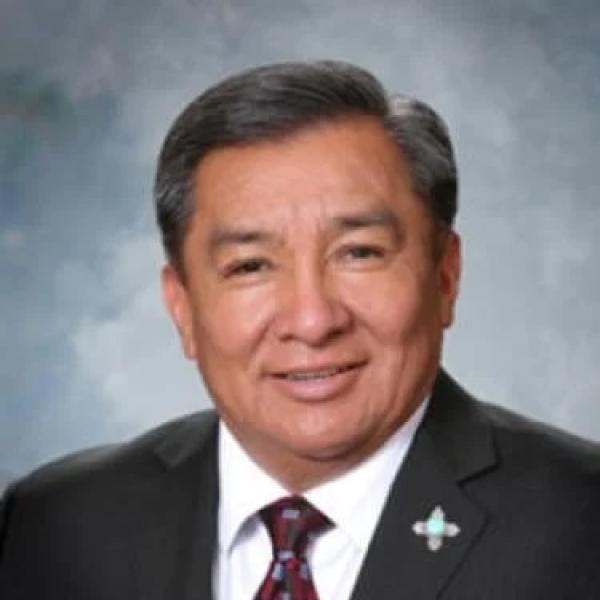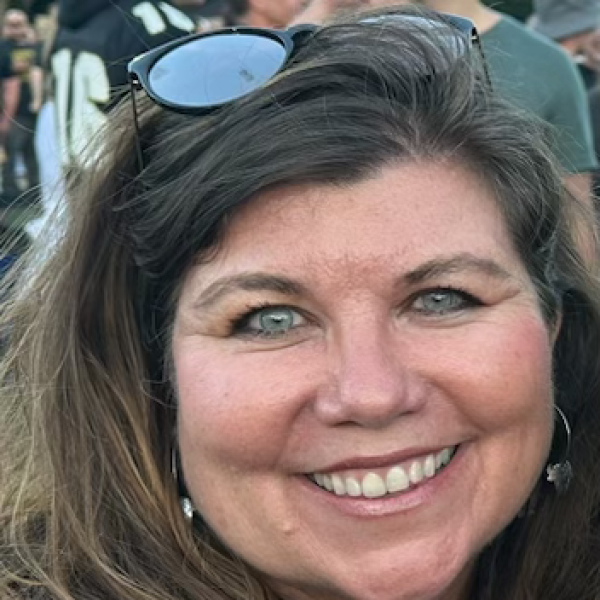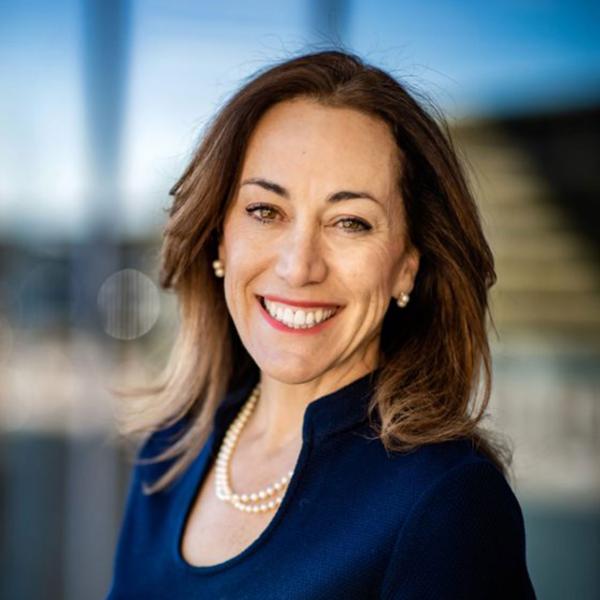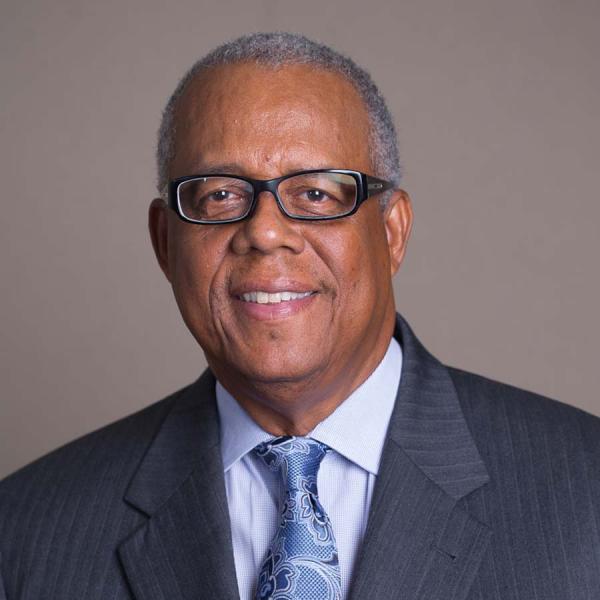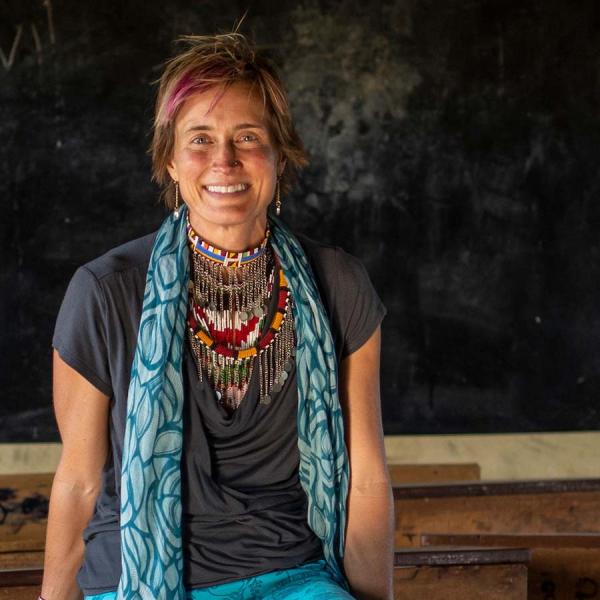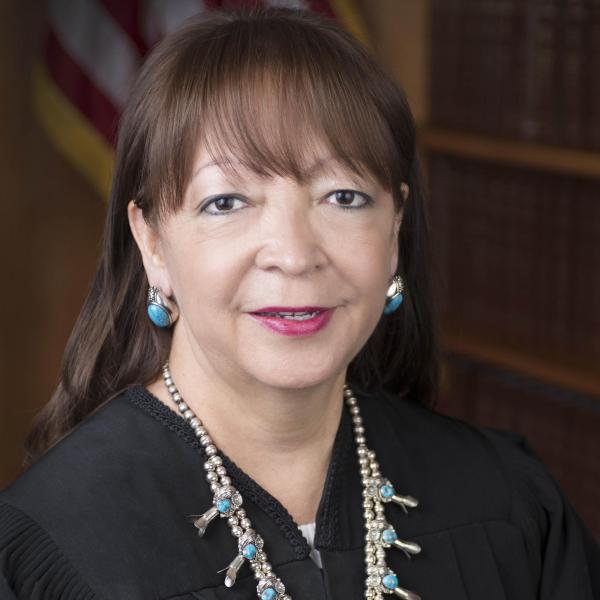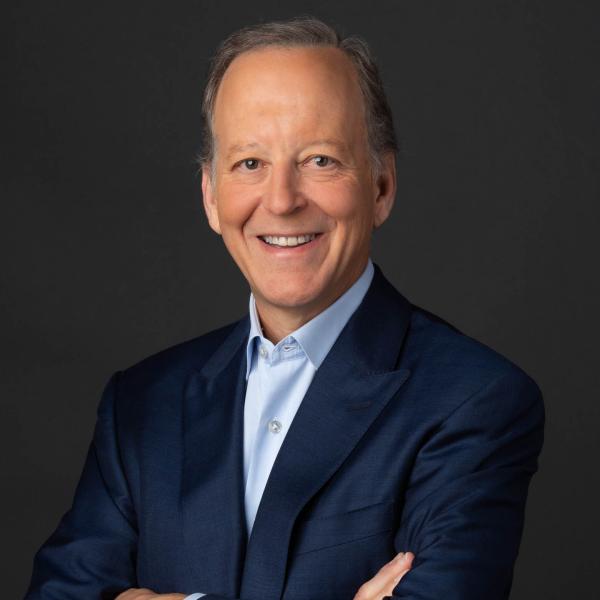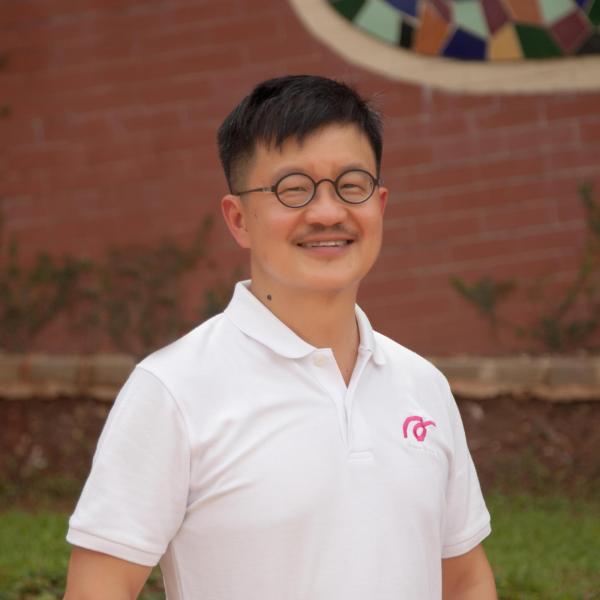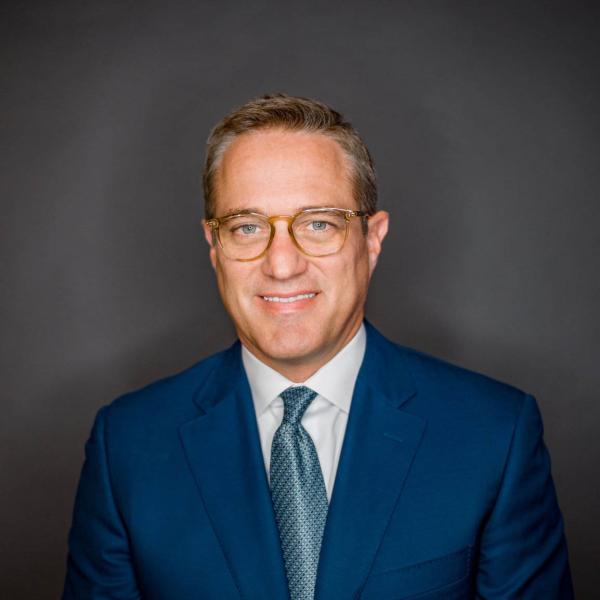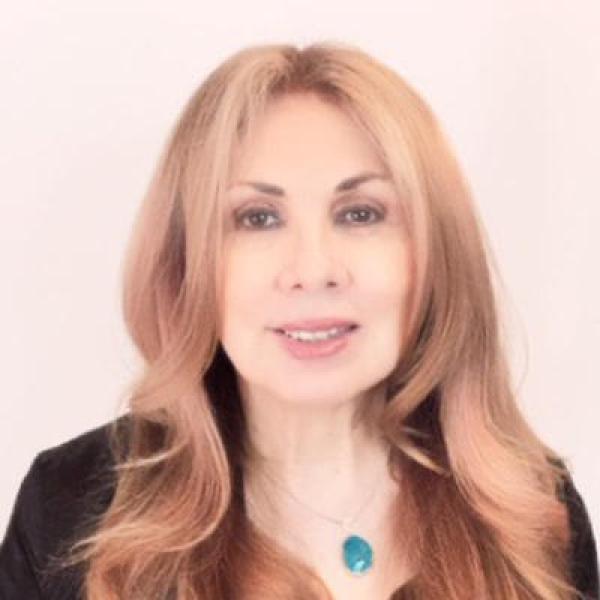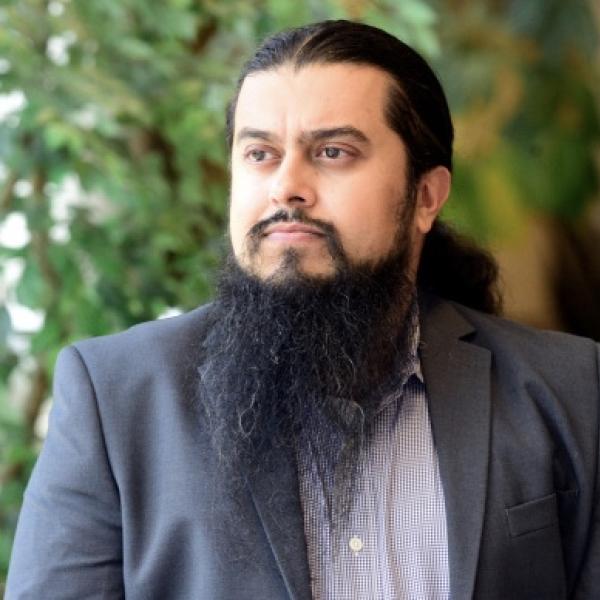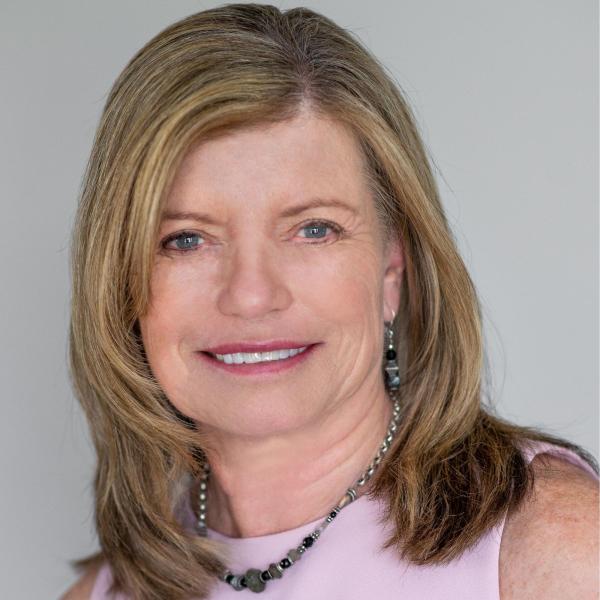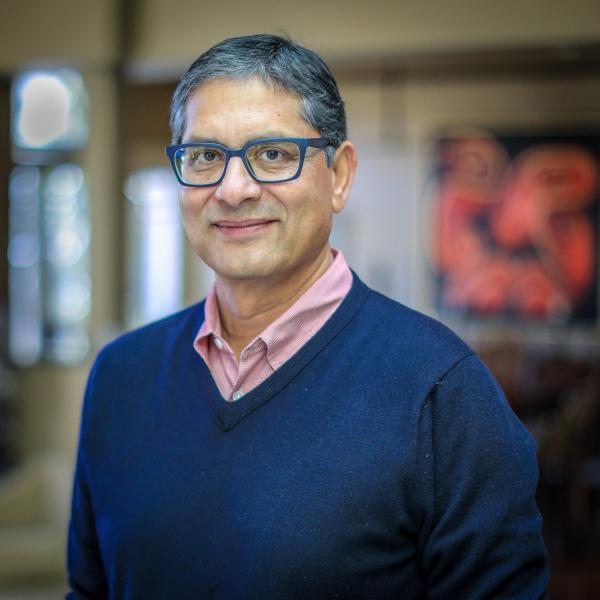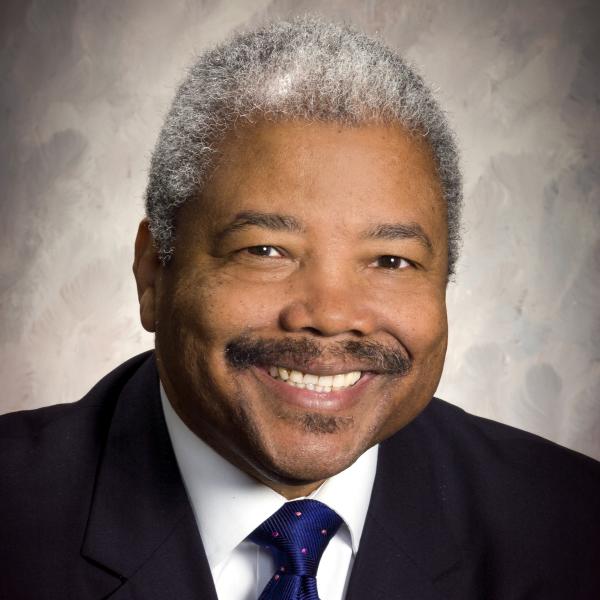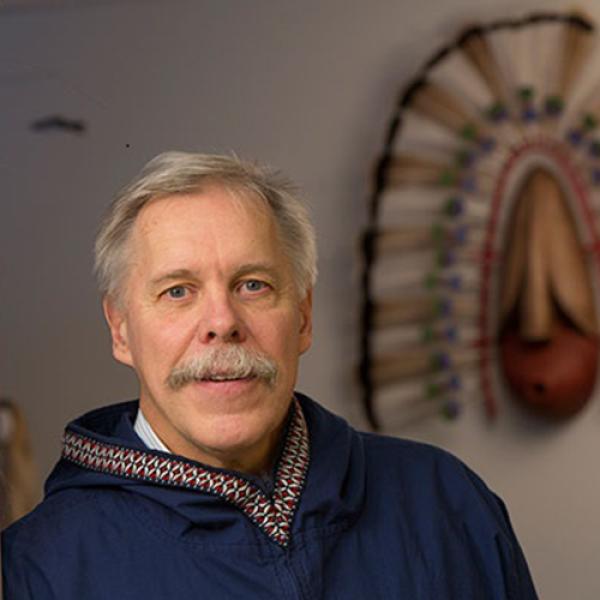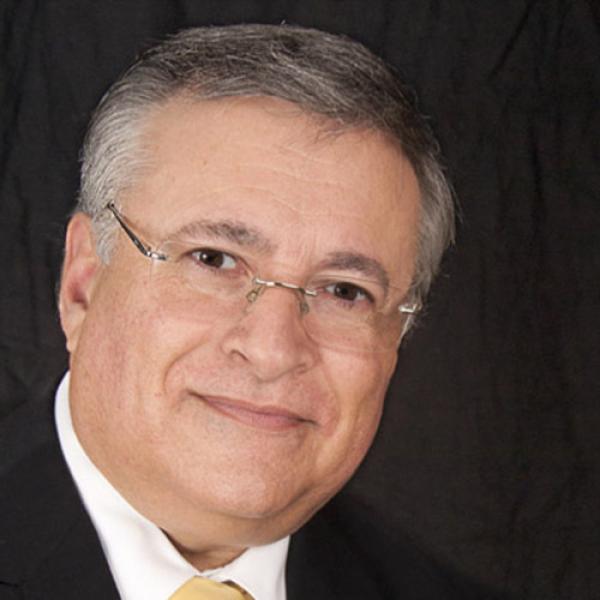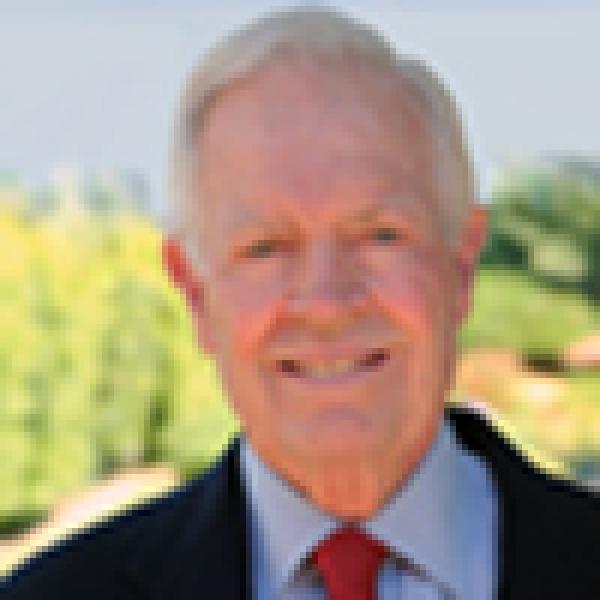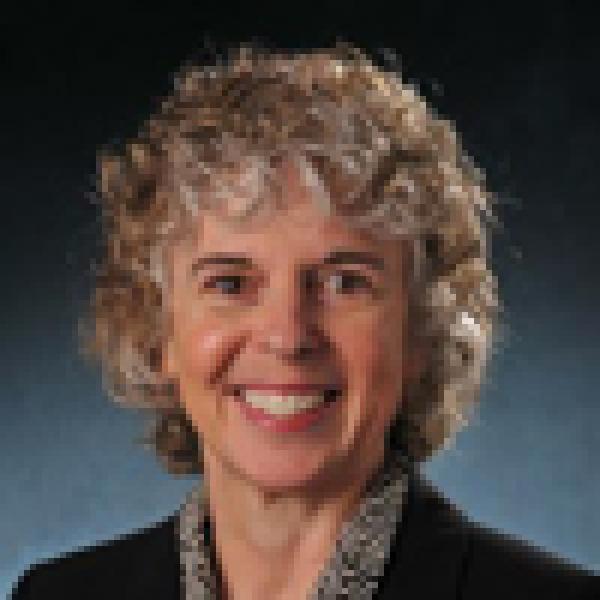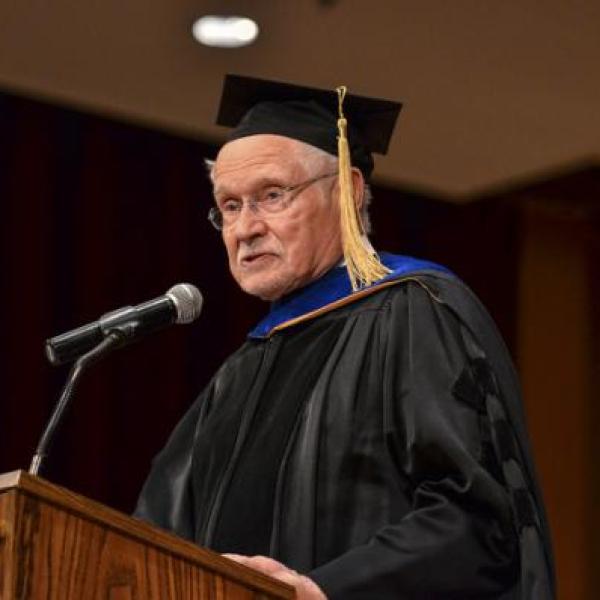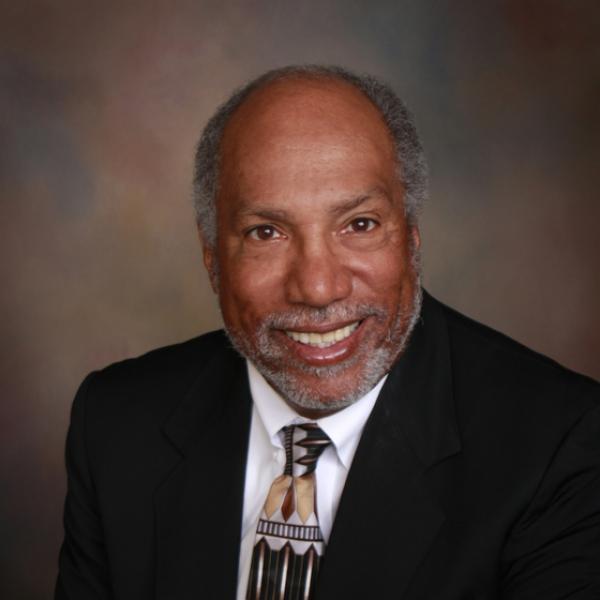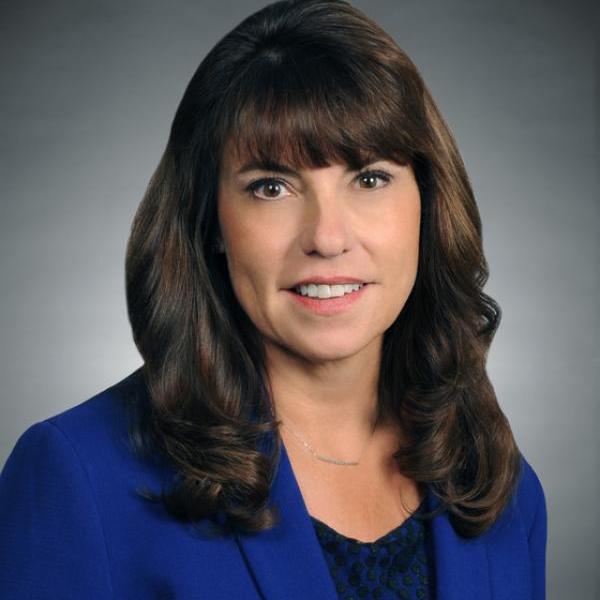George Norlin Award
Previous Winners of the George Norlin Award
Benny Shendo Jr. is one of this year’s highly esteemed recipients of the George Norlin Award, recognizing his dedicated service to diverse communities nationwide. Benny’s rich career spans decades, marked by significant contributions as a New Mexico lawmaker, higher education administrator and tribal leader.
Hailing from Jemez Pueblo, a remote village in north-central New Mexico, Benny graduated from CU with a degree in Organization Management. After graduation, he devoted his career to public service in various leadership, business development and community development roles. He has served as an educator, lieutenant governor, New Mexico state secretary, entrepreneur and community activist. As the current representative of Senate District 22, Benny's commitment to “doing the right thing” and his deep respect for others have allowed him to build prosperous relationships across diverse demographics.
Throughout his career, Benny has shown an exceptional ability to address pressing issues affecting all New Mexicans. His extensive experience at local, state, national and international levels has brought transformative changes to the communities and Tribal Nations he represents. Benny's approach has always prioritized community building, ensuring that public needs are met through collaborative and inclusive efforts.
Benny has served on numerous boards, including the CU Advisory Committee for the Center for Native American Indigenous Studies and the National Caucus of Native American State Legislators. He was elected chairman of the board of the First Nations Development Institute in 2016 and has received numerous honors and awards, including the Mary G. Ross award by the Council of Energy Resource Tribes, the Kellogg National Leadership Fellowship and the National Center for American Indian Enterprise Development's Public Advocate Award.
Now, as associate vice chancellor for Native American affairs at CU Boulder, Benny is dedicated to strengthening CU's relationships with the 48 Tribes historically connected to Colorado and building a robust Native American community on campus. He aims to reclaim Native cultural identity, language, lands, sacred sites and traditions, emphasizing the importance of education in this reclamation process.
“I have seen Benny work directly with people of all ages, to educate, inform and engage in meaningful events in his work and community,” said nominator Patrita Salazar (DistSt’16). “He is determined to provide a sense of community for those who walk into the doors, and I know his voice will lead crucial conversations in his role at CU.”
Benny is the proud father of two children, Eileen Shendo (EthnSt’11) and Benjamin Shendo, as well as three grandsons: Wequai, Nuhkon and Sequan.
Tanya Mares Kelly-Bowry embodies the ideals of the George Norlin Award and her legacy of excellence, advocacy and mentorship continues to inspire those around her. Tanya’s journey from a young Latina student at CU to a prominent lobbyist and community leader is inspirational. Her innovative achievements, lifelong relationships and commitment to public service have left a lasting impact.
Her rural Colorado roots have driven her to advocate for underrepresented communities and mentor young students. Her influence is evident in the careers of many politicians, including Democratic and Republican congressional members, Colorado governors and members of the Colorado General Assembly.
Tanya has served the University of Colorado for 26 years, achieving the distinction of being the youngest woman and first Hispanic vice president for state and federal government relations in CU’s history. During her tenure, she transformed the university’s lobbying operations, securing over $1 billion and increasing federal agency appropriations for research faculty.
At the state level, Tanya lobbied for student support, financial aid, scholarships and hundreds of millions of dollars for capital construction and operations for all four university campuses. Her strategic leadership and powerhouse lobbying attracted vital resources to CU and protected the university from adverse budget events and harmful legislation. She served under many Board of Regent members, chancellors, faculty, staff and students, working with seven university presidents.
Beyond her financial accomplishments, Tanya played a crucial role in building relationships between CU and communities of color, advancing diversity and inclusion. As the only Latina on the CU executive team, she passionately supported CU’s mission to foster a diverse educational environment. Her ability to engage students and faculty in legislative advocacy highlighted CU’s strengths and priorities. Tanya also co-founded Policy Matters, a private lobbying firm contributing to local, state and national policy.
Tanya learned her confidence and leadership style from her parents, Al and Carmen Kelly. Her tenacity and commitment to the environment came from her brother Shay, who was killed in Santiago, Chile, while completing a CU immersion program. Without the support of her family, friends and the love and partnership of her husband Chris, and the resilience of her patient daughters Skylar and Jayden, Tanya would not be where she is today, profoundly grateful to accept this award.
Tanya’s awards include the Faculty Council’s Administrator of the Year, a full-ride scholarship for her master’s degree from the Colorado Trust, being named an Outstanding Leader by HERS and a Harvard Kennedy School of Government fellowship. Her community involvement includes supporting CU scholarships and contributing to organizations like the Latin American Education Foundation and Imagine! for developmental disabilities. Tanya also serves on the boards of the University of Colorado Foundation and the El Pomar Foundation.
With every step of Janine Davidson’s combined 30 years of academic, civilian and military service, she has demonstrated a commitment to excellence and the betterment of society and her community — precisely what the prestigious George Norlin Award stands for.
During her rich career, Janine initially held many roles within the U.S. Department of Defense (DOD), including deputy assistant secretary of defense for plans, where she oversaw the formulation and review of military war plans and global force posture policy. For her work, she was awarded the Secretary of Defense Medal for Outstanding Public Service. This award recognizes outstanding service of significance to the DOD, including personal sacrifice in the performance of that service and motivation by patriotism, good citizenship and a sense of public responsibility.
Her military service culminated as the 32nd Under Secretary of the U.S. Navy, as appointed by President Barack Obama. During that time, she planned the execution of a $900-billion, five-year budget, ensuring readiness, modernization and the health of 900,000 military and civilian personnel and their families.
Now, Janine serves as president of Metropolitan State University of Denver, Colorado’s third-largest public university. In this role, she’s described as “a fierce advocate for MSU Denver’s 17,000 students,” according to nominators Gardiner Porter and Laurie Porter (Bus’88).
During her time at MSU Denver, Janine has staunchly supported the DREAM Act and the university’s DACA students, as well as its minoritized, military and veteran students. She’s also an active steward of the processes that make our democratic society work, launching MSU Denver’s Institute for Public Service, which focuses on inspiring and preparing students for careers in government and the nonprofit sector.
“She has championed the role public universities play in ‘holding the line on the American dream,’” said the Porters.
In addition to her professional achievements, Janine serves on numerous national and Denver-area boards, including with the Chair Defense Policy, Foreign Affairs Policy, UMB Financial Corp, Colorado Concern, Downtown Denver Partnership and Denver Metro Chamber Leadership Foundation.
As shared by her nominators, “Janine has demonstrated a long-lasting commitment to excellence in her professional career rising up to senior leadership positions within the U.S. Departments of Defense and Education.
“Her consistent devotion to the betterment of society and our community is articulated by her devotion to our country … but also from her more recent efforts to develop high-quality, career-oriented undergraduate and graduate academic programs at MSU that serve Colorado’s communities and power its economy.”
Willie L. Hill Jr.’s career has run the gamut — from sharing stages with musical icons like Dizzy Gillespie to advocating for arts to leading workshops for public school children. Through it all, Hill provided exceptional time and dedication to provide services for the communities with which he was associated.
A jazz saxophonist, Hill has appeared in concert with artists such as Liza Minelli, Johnny Mathis, Sammy Davis Jr., Lou Rawls and Lena Horne. With over 45 appearances as a guest soloist with iconic big bands and as guest conductor at over 35 venues, he continues to inspire the national jazz scene.
But it’s off the stage that Hill’s impact reaches even further.
Hill gave generously of his time throughout his career, first serving as a teacher with Denver Public Schools and later as a professor at the CU Boulder College of Music. As director of the CU Jazz Summer Camp, he inspired generations of young people in high school and college.
“I learned from and worked with Willie and saw his teaching powerfully reach generations of students,” said College of Music Dean Emeritus Daniel Sher. “I found him to be a consummate virtuoso on the saxophone, and his leadership was an inspiration to his colleagues.”
This was only the beginning of an impressive trajectory of impact. As president of the National Association for Music Educators, Hill led an organization of music educators and college student chapters — over 125,000 members. Similarly, as president of the International Association of Jazz Educators, he led 15,000 members from over 35 countries.
He has been inducted into the Colorado Music Educators Hall of Fame, Grambling State University Hall of Fame and National History Makers Organization, and he has received numerous awards and accolades, including the Benny Golson Jazz Master Award, Lawrence Berk Jazz Educator of the Year Award and DownBeat Magazine Achievement Award in Jazz Education. He is also a founder of the Rick Matterson/Clark Terry Telluride Jazz Academy and Mile High Jazz Camp in Boulder.
Most recently, Hill retired from his position as director of the Fine Arts Center at the University of Massachusetts in 2019. In this role, he made a profound impact on communities by developing outreach initiatives to provide children with access, and also supported participation in music, dance, theater and the arts. Through his engaging personality, drive, energy and optimism, his participation made significant progress in the Fine Arts Center’s efforts to build community and develop the strategies and initiatives that break down cultural and societal barriers while promoting arts and culture.
Said Sher, “I heard from patrons and attendees of the events he performed in, planned or strategized that he was the kind of leader who always saw the best in people and always saw the glass as half full, no matter the challenge.”
Kayce Casner Anderson (EPOBio’01) had all the makings of a renowned ecologist.
After discovering an interest in honeybee research at CU Boulder, Anderson pursued the study of insect and animal species for more than a decade. She received her doctorate in ecology and evolutionary biology at the highly selective University of California, Davis, and her research on butterflies in the Andes and California found an important correlation between declining butterfly populations and climate change.
“I have no doubt that the stage was set for Kayce to have a highly productive and important career as an academic scientist,” said Michael Breed, a CU Boulder professor emeritus of ecology and evolutionary biology who taught Anderson.
But there was much more for Anderson to accomplish — this time with humans.
In 2014, Anderson founded For the Good, which seeks out and partners with remote and disadvantaged communities in Kenya to keep girls in school.
“Given a secondary education, girls earn higher incomes, have fewer and healthier children and are more likely to send their own children to school,” declares For the Good’s website.
As executive director of For the Good, Anderson uses her scientific past to drive evidence-based program approaches and evaluations. She helps open secondary schools in remote Kenyan villages; works with local political, religious and cultural leaders who can influence parents to send children to school; and targets families who may not have easy access to schooling.
“Kayce feels strongly that education is a right for all people and a leverage point to address many global challenges,” said Breed.
In addition to her work abroad, Anderson — a Glenwood Springs resident — is also director of the Casner Family Foundation, which provides support for first-generation and low-income students on Colorado’s western slope.
Anderson has said of her humanitarian work: “My leap from studying ecology and evolutionary biology to studying problems that keep youth out of school in Kenya might seem drastic, but it actually feels like I just changed systems as I have many times before — from research on honeybees as an undergraduate to butterfly species for my PhD to aquatic insect communities when working as a postdoc to human communities in Kenya. The driving questions in all cases have been infinitely interesting, and the process to understand them is the same.”
When Christine Marie Arguello was a junior in high school, her classmates laughed at her aspirations to get a degree from Harvard Law School. But her English teacher, Mrs. Poplin, knew otherwise: She looked her in the eyes and said, “Chris, I know you can do it.”
The encouragement from Mrs. Poplin and others propelled Arguello to success. Her trailblazing career as a lawyer, judge, educator and public servant has consistently broken down barriers and inspired other underrepresented students to follow their dreams.
After attending CU for a bachelor’s degree in education, Arguello graduated from Harvard Law in 1980 — the first Latina from Colorado to graduate from the prestigious program. She went on to become a private practice lawyer, tenured professor at the University of Kansas School of Law and university counsel at CU Boulder. Since 2008, she has presided as a district court judge in the U.S. District Court for the State of Colorado.
“She has made a positive impact on a national scale through her service as a federal judge,” said Professor Joseph Polman from CU’s School of Education. “She has demonstrated a long-lasting commitment to excellence in her professional career and a devotion to the betterment of society and her community.”
Arguello has been lauded throughout her career with awards such as the 2013 Latina Trailblazer award from the Latinas First Foundation, induction into both the Colorado Women's Hall of Fame (2014) and the Colorado Latino Hall of Fame (2020), a 2020 Award of Merit from the Denver Bar Association and the 2021 Lifetime Achievement Award from the Center for Legal Inclusiveness.
Perhaps her most defining characteristic, though, is her generous spirit. In 2014, she founded a Colorado-based law school pipeline program, “Law School… Yes We Can (Sí Se Puede)” to mentor underrepresented students who, like her, dream of going to law school. Since 2014, the program has delivered over 350 workshops, mentored nearly 80 fellows and facilitated 25 internships. The program has a 95% college completion rate. Two students in her program have graduated from law school, and five others are currently in law school.
"As a federal judge, [Arguello] does not have to devote her energy to these causes, does not have to pause to encourage diverse young students to pursue their dreams, and does not have to work to make the legal system better, fairer and more equitable," said Patrick O'Rourke, former board chair of the Center for Legal Inclusiveness, as well as executive vice chancellor and chief operating officer at CU Boulder.
"But she does, and that says everything about her."
A 12-time Emmy Award winner with a knack for thought-provoking interviews, sportscaster Jim Gray started his fabled career at CU Boulder in the 1970s. In the 40 years since he graduated with an advertising degree, Gray has given the American sports audience a front-row seat to many classic sports moments.
Always asking the tough but fair questions, Gray has used his skilled reporting to allow anyone to experience the magic, joy and heartbreak of professional athletes on and off the court, the field or the green.
“Jim Gray is a legendary figure in sports broadcasting,” said Lori Bergen, dean of the College of Media, Communication and Information. “He has been trusted by countless iconic athletes to tell their stories — of both triumph and disgrace — and Gray has had unprecedented access to the biggest names, events and moments in the last four decades of sports.”
Besides his numerous Emmy wins, Gray has earned some of the most prestigious honors in sports journalism. He was inducted into four Sports Halls of Fame, including the International Boxing Hall of Fame, and was honored by the Naismith Memorial Basketball Hall of Fame. He was also named Sports Reporter of the Year three times.
Currently, he works for Showtime, Fox and SiriusXM Radio. At Sirius, Gray is the host of a weekly show alongside broadcast partner Tom Brady, the most decorated quarterback in Super Bowl history.
Outside of his professional work, access to education is Gray’s most significant philanthropic priority. At CU Boulder, he and his wife, Frann, established an endowed scholarship in honor of his parents, Jerry and Lorna Gray, to benefit first-generation college students who graduate from Denver Public Schools. He participated in CMCI’s first media summit and held a public Zoom event for CU Boulder about his book, Talking to GOATs: The Moments You Remember and the Stories You Never Heard, a national bestseller published in fall 2020.
In addition to his scholarship support at CU, Jim and Frann are very active in numerous philanthropic endeavors, charities and events.
On and off screen, Gray has garnered a reputation for being an honest reporter and a trusted friend.
When asked if he had one word to describe Gray, the legendary Kobe Bryant responded, “Honest.”
“Jim interviewed me after my prolific fights. We were a sensational duo,” said acclaimed boxer Mike Tyson. “Out of the ring, Jim became my most trusted friend. He’s there no matter what and never afraid to give it to me straight. He’s always coming from a place of love and compassion. You know where you stand.”
Many young minds are attracted to CU Boulder for the beauty of the mountains. For Tandean Rustandy, his decision to become a Buff came down to being able to work his first semester of college washing dishes.
“I had to work right away to pay for my expenses, and I started my work-study job at the bottom — in the dining hall, washing dirty pots and pans,” said Rustandy. “I took it very seriously. Little by little, I was asked to take on more responsibility. I was asked to cook, I started working with the manager in the cafeteria and I also worked at the University Club.”
Rustandy’s family sacrificed greatly to send him to college, and he took his education and work in Colorado seriously. He was committed to expanding his knowledge and expertise so he could bring it back to his home country.
Despite his dedication to work, finances were tight. In his junior year, Rustandy’s parents sold their house to pay for his tuition. By senior year, with that money gone, Rustandy’s roommate lent him money to pay for part of his tuition.
“We are friends to this day,” said Rustandy. “I will never forget his kindness and generosity.”
Rustandy’s dedication and his family’s sacrifice paid off. After graduating from CU, he moved back to Indonesia and started his career in the lumber industry. In 1993 he transitioned to the ceramic tile business, developing an environmentally friendly business model that also supports local people through job placement and access to education and healthcare.
His ethical and green-focused business, PT Arwana Citramulia Tbk, now has five factories and employs 3,000 people. His lines of tile are developed specifically for low-income Indonesians; its affordability allows many families to enjoy tile flooring rather than dirt floors.
“Tandean has demonstrated exceptional devotion to the betterment of society, consistent integrity and has made a transformative impact on a national and global scale,” said Sharon Matusik, dean of the Leeds School of Business. “He credits CU Boulder for teaching him entrepreneurial thinking and the importance of creating economic and social value at the same time, through thoughtful business decisions.”
Rustandy has given over $10 million to CU Boulder, most notably in support of the Rustandy Building connecting the Leeds School of Business and College of Engineering and Applied Science. The building celebrates its ceremonial grand opening Nov. 7, 2021. He has also partnered with Leeds to support the highest caliber of faculty as well as global career treks to bring students to Indonesia to learn about international business.
“Being at CU laid the foundation for everything I would do,” he said.
Rustandy is unequivocal about the impact of his CU education and his commitment to paying it forward.
“He is a stellar role model for our students. Throughout his professional life, he has showcased how a business can be both profitable and community minded,” said Matusik. “His tenacity, commitment to his values and unwavering dedication to education can be seen in everything that he does.”
In the early ‘90s, Tom Garfinkel (Comm’91) found himself tending bar in Chicago as a young CU graduate. Within a couple years, he was managing the place, along with two other bars.
The experience, which included negotiating beer deals and running marketing campaigns, set the stage for his entire career.
Thirty years later, Tom serves as vice chairman, president and CEO of the Miami Dolphins and Hard Rock Stadium and is considered a commanding voice in South Florida and the sports industry.
“Without any personal fanfare, Tom Garfinkel has transformed a 33-year-old football stadium into a modern, state-of-the-art, year-round sports and entertainment facility,” said Dick Anderson, former Buffs and Dolphins football legend.
Spearheaded by Tom, the Dolphins have not only renovated their stadium and increased attendance — in addition to hosting the 2020 Super Bowl — but also have expanded their charitable efforts and community outreach.
“Seizing on the opportunity to educate and unify the culturally diverse South Florida community, Tom created the Football Unites program,” said Florida Senator Marco Rubio. “With more than 61 community partners, Football Unites has successfully linked organizations together, reaching and educating countless constituents.”
Football Unites, started in 2018, has several initiatives, such as “Ride Along,” which connects the Dolphins, local law enforcement and youth organizations to encourage dialog and understanding.
“We want to change how people look at and interact with each other,” Tom told CBSN Miami. “We can hopefully help heal what is, in a lot of ways, a very polarized nation.”
As a board member for the Dolphins Cancer Challenge, Tom helped the Dolphins raise over $6 million for Miami’s Sylvester Comprehensive Cancer Center in 2020, the largest such fundraiser of any NFL team.
Tom also led an initiative to be the first stadium to eliminate 99% of single-use plastics and became the first stadium in sports to achieve GBAC-Star certification during the pandemic, which is an objective third-party expert standard for cleanliness.
Before his role in Miami, Tom — who has an MBA from the University of Michigan — served as president and CEO of the San Diego Padres, COO of the Arizona Diamondbacks and executive vice president of Chip Ganassi Racing’s NASCAR team. He also worked in sales and marketing at both Miller Brewing and Texaco Inc.
And finally, Tom’s love for sports is what drives much of his work. He met his wife, Allison, at the 1998 Miami Grand Prix and played high school football and basketball.
The father of three sons told the Coloradan alumni magazine last year, “Sports, and especially football, invokes the human spirit to inspire and motivate and educate us about ourselves, both the good and the bad.”
Imagine a classroom where students teach as much as they learn. Where the students are as diverse as the teaching methods. Where every voice matters.
Kris Gutiérrez (PhDEd’87) is creating those classrooms.
Kris is an internationally recognized researcher, advisor, teacher and mentor in the education field. A prolific writer, she has long championed equity in schools. In particular, she has helped transform education for marginalized groups, including immigrant and migrant communities.
In developing her concept of “third space,” Kris recognized that both teachers and students can bring expertise to the classroom based on their unique experiences. She has also studied how learning environments can be better organized to reflect and respond to non-Western cultures.
“She is a genius at bridging contexts — not just bridging between academic and real-world contexts, but within academia bridging among divergent approaches,” said Barbara Rogoff, a distinguished professor of psychology at UC Santa Cruz.
As a public scholar, Kris is generous with her time. She was a member of President Barack Obama’s Education Policy Transition Team in 2008–09 and was also appointed by President Obama to the National Board for the Institute of Education Sciences.
She has served as president of the American Educational Research Association, the largest educational research organization in the world, and remains active as a keynote speaker, committee member and foundation advisor.
But Kris’ most direct, personal impact comes from her teaching and mentoring.
“Her courses are legendary for their rigor, playfulness and innovation,” wrote Arturo Cortez and José Ramón Lizárraga, assistant professors in CU’s School of Education.
Michael Cole, professor emeritus at UC San Diego, remembered co-teaching courses with Kris using online technology to increase the diversity of participants. “She is a remarkably accomplished scholar who has a great impact on contemporary education, particularly the education of Latinx children, youth and young adults,” he said.
Kris has mentored many doctoral students who have gone on to be leaders in the education field. She is committed not only to passing on her own knowledge and expertise, but to being an ally to underserved students.
“She has charted a path for scholars like us (queer, Latinx, first-generation college [students], as well as high school graduates) to have a place in the academy,” wrote Arturo and José, “and to continue the important work of imagining, designing and creating a new equitable and just world.”
After earning her doctorate from CU Boulder and serving as the inaugural Provost’s Chair in the School of Education, Kris is now the Carol Liu Chair in Educational Policy and a faculty member in the Learning Sciences and Human Development department at UC Berkeley, as well as a former professor at UCLA. Recently elected to the American Academy of Arts and Sciences — whose members have included Albert Einstein, Joan Baez and a member of the National Academy of Education — Kris continues to transform the educational system and inspire new scholars and teachers.
“Along with her indefatigable work ethic, her brilliant intellect and her inspiring leadership,” said Joseph L. Polman, associate dean for research at the School of Education, “Dr. Gutiérrez is a person of deep warmth and caring who maintains fierce attention to equity and transformational change.”
The human life — any life — is of utmost importance to Nikhil Mankekar (Fin’01).
With a focus on diversity, inclusion, gender equity, housing protections, fair wages, preventing hate crimes and more, Nikhil has been a compassionate champion for women, black, Indigenous and people of color, immigrants, the LGBTQ+ community, the homeless population and under-resourced and under-served communities in Boulder and greater Colorado.
In short, Nikhil cares deeply about building a safe, welcoming, and inclusive community.
“He is a strong force in improving Boulder city and county, and Colorado, and brings innovation to social justice work and policy,” said Joanne Belknap, a tenured CU Boulder ethnic studies professor.
A Boulder native with a career spent in financial consulting, venture capital and social entrepreneurship, Nikhil’s confident leadership as a member and chairman of the City of Boulder’s Human Relations Commission for more than six years has led to several monumental changes in Boulder law and social policy. In 2019, he led the effort to add innovative updates to Boulder’s hate crime ordinance, including enhanced prosecutorial ability, protections for religious expression and new ways to offer support for hate crime victims. He created trainings and resources on the new law, and all were introduced to the entire Boulder Police Department.
“Nikhil has been an outstanding partner, ally and leader in the fight against hate,” said Michael T. Dougherty, the elected Boulder County District Attorney.
As the first Indian and Sikh-American appointed to a city board in Boulder, he spearheaded new housing and mobile home protections, added gender inclusive language and protections to the city’s human rights ordinance and fought the criminalization of homelessness in Boulder with compassionate, creative and effective solutions. He co-founded and was instrumental in the creation and planning of Boulder’s Indigenous Peoples Day, making the city the 14th in the nation to do so. He also worked directly with Boulder’s mayor and city council on many other civil and human rights policies.
“Nikhil did an extraordinary job as a human relations commissioner where he achieved a long list of accomplishments and became known for his perseverance in advocating for human rights and working on behalf of marginalized and voiceless populations,” said Boulder’s former mayor, Suzanne Jones. “He deserves our appreciation for his dedication to the community and the advancement of human rights. I have greatly valued working with him.”
In 2017, the United Nations Association awarded Nikhil the International Human Rights Award for his work. He said upon receiving the award, “The reason I’ve stayed and lived in Boulder, even despite discrimination that I’ve experienced, is to do what I’m doing now and to make it a better place for everyone.”
Nikhil is also a musician, artist, educator, and facilitator. He is the producer and host of his own radio talk show and podcast, and has appeared on NPR’s All Things Considered, helping educate and raise cultural awareness in the community. He also serves on the board of directors for a variety of local nonprofit organizations serving the arts, equity, education and economic development.
CU Boulder also benefits from his compassion and grit. Nikhil graduated with a 4.0 GPA and received the Chancellor’s Recognition Award. The 2001 CU Boulder valedictorian and Outstanding Graduate of the Leeds School of Business is a regular moderator and panelist for the annual Conference on World Affairs and has served as a mentor for CU students.
Said Edie Hooton, a Colorado state representative, “Nikhil’s continued dedication, willingness to volunteer and his track record of initiating substantive change in policy make him an effective leader and advocate for social justice in our community.”
With Nikhil, Boulder is in good hands.
Educator. Researcher. Mentor. Leader. There are many ways to describe Jackie Colt. The most important might be this: Change-maker.
Jackie dedicated her 40-year career in public education to improving literacy and the student experience, as a district literacy coordinator, CU instructor and chair of CU’s School of Education Advisory Board.
Perhaps her most significant contribution began in Longmont’s St. Vrain Valley School District, where she directed the Right Start Reading Project. In addition to pulling struggling readers out of class, the program integrated remedial reading instruction into elementary classrooms. This unprecedented approach was especially helpful for special education and bilingual students.
“The Right Start Reading Project created a culture shift in the school,” a peer said. “Everyone became a teacher of reading.”
District-wide literacy levels improved dramatically, and the project model was later implemented around the country. “Her efforts and results were monumental — all because she not only believed all students could learn, but developed a program that proved it,” another peer said.
As a clinical professor at CU, Jackie married research and teaching, using the fruit of her research to reform the way future teachers learn reading instruction.
“Researchers often have difficulty making their work accessible to practitioners,” said one scholar, “but with Jackie on the team, we were able to bridge that gap for the benefit of teachers, administrators and students.”
Now retired, Jackie continues to support literacy for adults as a volunteer. She also contributes to a CU scholarship supporting educators who teach in high-poverty schools. Thousands of students continue to benefit from her life’s work.
Sometimes, all you need to solve a tough problem is a rocket scientist with a good golf game. Fortunately, at least one exists: Safwan Shah studied both electrical and aerospace engineering at CU Boulder before establishing himself as a Silicon Valley serial entrepreneur in financial technologies, or FinTech.
Along the way, he designed experiments for the US space program and researched artificial neural networks and AI.
Today Safwan is CEO and founder of PayActiv, which helps workers gain instant and timely access to earned wages, alleviating financial stress between pay periods and allowing them to avoid punitive fees of pawn shops and predatory lenders. Walmart, ADP, Visa, Uber and many others partner with PayActiv.
Earlier, Safwan cofounded Infonox, which produced payments technology widely used in the casino industry and also developed the first biometric ATM.
Born in Pakistan and now a California resident, Safwan met his wife, Ginni Dhindsa, in Boulder. He is an intimidatingly good golfer with a voracious appetite for new knowledge, a friend said.
Safwan has taught at Cal-Berkeley’s Haas School of Business and UC Santa Cruz’s Baskin School of Engineering, and advised CU Boulder on innovation and entrepreneurship initiatives.
“Safwan is a perpetual learner, reading everything he can get his hands on, absorbing, analyzing, critiquing and challenging ideas often taken for granted,” a friend said. “He challenges the status quo constantly and has the unique ability to apply knowledge from the multitude of physical and social sciences to finding solutions that could have a meaningful impact on society.
“His passion for learning is only matched with his love for sharing his knowledge.”
In the early 1980s, Olester Benson was an active-duty U.S. Army Pharmacy Specialist assigned to the Fitzsimons Army Medical Center in Aurora. A husband and father, he studied at night for a bachelor’s degree at CU Denver. There a professor noticed Olester’s talent for chemistry and urged him to pursue graduate work — then personally drove him to Boulder to introduce him to future mentors here. By 1988, Olester was a CU Boulder PhD and on course for a remarkable life in science. In the 29 years since, he’s distinguished himself at Minnesota-based 3M Corp., which ranks him among its top researchers for his combination of scientific prowess, ability to apply science to real life and commitment to mentoring. A corporate scientist there — 3M’s highest rank — Olester has developed manufacturing technologies enabling more than 300 products with applications in medicine, renewable energy, aerospace, traffic safety, semiconductors and electronic displays. He’s earned more than 70 patents. Others are pending. Grateful for his own mentors, Olester has prioritized mentorship and service to the benefit of aspiring young scientists around the country. At CU Boulder, he served on the graduate school advisory council for a decade. He’s recruited our graduate students for positions at 3M. And he made a gift that helped endow a graduate fellowship in organic chemistry. In 2017, the National Organization for the Professional Advancement of Black Chemists and Chemical Engineers recognized him with its top award. Part way through graduate school, Olester switched from active to reserve status in the Army. The PhD retired as a master sergeant in 1997.
Herb IIisaurri Schroeder went to Alaska in the 1970s to work on a construction project. He didn’t have a college education, but he dreamed of becoming an engineer. Those early experiences inspired a lifelong mission to prove that the most important factor for success in science and engineering is not test scores, but curiosity about the world and delight in solving problems. Today Herb, who ultimately earned a PhD in civil engineering from CU Boulder, is vice provost for the Alaska Native Science and Engineering Program (ANSEP) at the University of Alaska Anchorage. The program, which he founded, works to eliminate biases against Alaska Native students while empowering them to succeed in STEM disciplines. “While Herb is both a gifted engineer and a great teacher,” a colleague said, “his true genius is in seeing potential in young people and giving them the tools they need to realize their dreams.” The program has changed the lives of many thousands of students with 2,500 students currently enrolled from middle school to the university level. 800 Natives have graduated with STEM BS degrees from the University of Alaska since its inception in 1995. “Herb is a shining light among non-Native Alaskans in actively working to right historical wrongs and support Alaska Natives in creating a positive future for our state,” said an Alaska Native and colleague. Herb has received dozens of national awards, including the Presidential Award for Excellence in Science, Mathematics and Engineering Mentoring from President George W. Bush. More impressive still, another colleague writes, is the honor the Alaskan Native students and their families have bestowed on him: The name “Ilisaurri.” It means “teacher.”
Lorenzo Trujillo has had three outstanding careers — in education, law and music — and at times he’s even managed to blend them. “The rarity of Lorenzo’s range of talent and enterprise is…striking,” said a peer. Currently Lorenzo is an affiliate professor of music at Metropolitan State University in Denver. He began the CU portion of his fruitful journey majoring in Spanish and then completing a master’s degree in dance. Soon after graduation, he began teaching Folklórico classes – Mexican folk dance – as faculty in the dance department offering courses and performing with students across Colorado and Wyoming under the banner of the University of Colorado Ballet Folklórico. Then he earned a doctorate in education from the University of San Francisco and embarked on a career in education administration. As executive director for humanities for Jefferson County Public Schools for eight years, he fostered interest among students in the arts, languages and social studies. Over a period of eight years in Adams County Schools as a district administrator, legal counsel and principal at Lester Arnold Alternative High School, he increased graduation and attendance rates. At age 39, he came back to CU — as a law student. An attorney for more than two decades, Lorenzo prioritized underrepresented populations in private practice and at CU Boulder, where he served as a law school assistant dean. He co-founded the four-year mentoring program, “Law School…Yes We Can,” for underrepresented undergraduates interested in law. Lorenzo’s passion is the well-being of family and community as developed through education, access to justice and the joy of life through music and dance. A versatile violinist who plays in various styles, including classical and mariachi, Lorenzo now directs Metro’s mariachi ensemble.
George “Geoie” Writer is a legend in the Colorado building industry. After serving as an officer in the U.S. Navy, Geoie Writer returned to Denver and founded The Writer Corporation, a home building company, in 1965. Mr. Writer’s vision was to build communities, not just homes, which included open space parks, school sites, walking paths and recreational centers with pools and tennis courts. He’s built more than 12,000 homes in communities across the Front Range including Willow Creek, The Dam, The Knolls, South Park, Devil’s Thumb and The Peninsula. Mr. Writer is passionate about design with an enduring impact, and all of his communities – including those that are 50 years old – are still thriving and evolving.
Mr. Writer built the iconic Writer Square in downtown Denver, named the 1980s top architectural and functional urban development by the Colorado Design Council, and received their 25-year award for architectural design of enduring significance.
In 1978 he was the youngest recipient to be named National Builder of the Year by Professional Builder magazine. The magazine’s editor described him as someone who was “furthering the professionalism of the building business in America.” His accolades continued with Man of the Year awards from both the Colorado and Denver Housing Industry.
Mr. Writer, who has five children, eight grandchildren and five great grandchildren, retired in 2004, but remains dedicated to improving others’ lives. Mr. Writer continues to inspire the next generation through his engagement with the CU Leeds Center for Education on Social Responsibility (CESR). In the words of a CESR leader: “Geoie has clearly cultivated habits of community service that drive him to serve the common good of society and his community.”
For more than three decades, professor Yusur Wajih Al-Madani of Kuwait University has made extraordinary progress for students in her country. But first, she gleaned inspiration in Boulder. Yusur came to CU in the late 1970s and was the first Kuwaiti to earn a PhD in English literature with an American emphasis. She demonstrated great ability in deciphering complex texts and an eloquent writing style, despite her non-native language.
Said a friend from CU: “As a professor of literature I am totally awed by Yusur’s intellectual and scholarly development in a range of literatures and cultures that would seem to have taken several lifetimes to master.”
Yusur returned to Kuwait to create more opportunities for students to study foreign literatures and cultures. She also wanted students to express themselves in the arts, including music, filming and acting.
She delivered on her vision as Head of the English Language and Literature Department by establishing in 2003 the English Day, an outlet for creativity for students which has become a standing tradition since then.
As Associate Dean for Academic Affairs at Kuwait University, she developed and gained accreditation for the university’s College of Arts. From there, she also chaired the now thriving French Department.
She also chaired the college’s now-thriving French department until February 2017. In 2009, Yusur was awarded the Palm Academic Award by the French Ambassador on behalf of the French Republic for her efforts in launching the department, the first in the Gulf area.
Said a colleague: “Yusur makes everyone around her — undergraduate and graduate students, faculty and administrators alike — want to aim higher for themselves, for the university and for community.”
With more than four decades spent at CU Boulder, Lorrie Shepard was often the trusted go-to for campus administrators concerning policies, programs and possibilities. “She is known for her sharp analytical skills, her articulate questions and her tenacious commitment to fairness,” said a former CU vice-provost.
In her own work, Lorrie has contributed extensive research on psychometrics, testing and assessment policies, and the use and misuse of tests in educational settings. She is a champion of classroom formative assessments that help improve student learning, and she is committed to equipping and supporting future teachers to serve all students.
A former doctoral student said, “I often feel the positive difference in the way that colleagues look at me when they learn that I was a student of Dr. Shepard’s.” . “I hope that a fraction of her skills rubbed off on me.”
Her leading contributions to research nationally did not diminish her impact as a university leader locally. As dean of the School of Education for 15 years, Lorrie built a productive, effective and dedicated faculty, tripling total research grants. She also helped establish the CU Engage center, connecting CU students and faculty with community members, and she helped create the school’s first development advisory board. Lorrie remains on the faculty as a distinguished professor.
Said a peer: “She is regarded widely as a clear thinker, an audacious proponent of quality education for underserved students and a champion of teachers who make the K-12 educational system work.”
Dave Grusin’s achievements could make anyone feel like an underachiever. It’s among his gifts that he never does.
Intimates describe the 10-time Grammy winner and Academy Award recipient as a rare species — a “creative genius” who brings out the best in others, whether they’re seasoned professional musicians or amateurs with a dream.
A masterful jazz pianist, Dave has been composing, playing, arranging or producing music professionally since the 1960s.
He has performed worldwide and worked with Quincy Jones, Jobim, Paul Simon, Bobby MacFerrin, James Taylor, Renee Fleming and many others. He’s written music for more than 100 films and television programs, including “The Graduate,” “Tootsie,” “On Golden Pond” and “St. Elsewhere.”
Nominated for the Academy Award eight times, he won in 1988 for his score for “The Milagro Beanfield War.”
Admired for his contagious enthusiasm, collaborative spirit and highly original output, Dave’s work often blends elements of jazz, pop and classical music.
Amid all this, Dave has made CU Boulder a priority.
A founding member of the College of Music Advisory Board, he has participated in the Conference on World Affairs for decades — and once returned early from an overseas tour to appear at the Tuesday night jazz concert. He’s performed live with CU musical groups, led students in master classes and given generously of his resources, providing major support for the renovation of the space today called Grusin Music Hall.
In the words of one CU music professor,
“He is a hero to us.”
W. Harold “Sonny” Flowers didn’t have many fellow black classmates at Boulder High in the early 1960s, but he found community among black CU student-athletes he befriended on The Hill.
“Even then,” one mentor wrote, “Sonny stood out as a young man who would go places.”
After enrolling at CU, Sonny, now a prominent Boulder attorney and citizen, emerged as a champion for campus diversity.
He continued this role at Colorado Law, distinguishing himself as a bold debater who traveled the state recruiting students of color to the school.
Over the decades he’s served CU loyally — not least as president of the Alumni Association’s board of directors, as a member of the CU Law and CU Foundation boards and as mentor of black student-athletes, future lawyers among them.
Sonny helped establish the Black Alumni Association and create an endowed scholarship for students of color at both Colorado Law and the University of Denver.
A litigator with Boulder’s Hurth, Sisk & Blakemore, LLC, Sonny is a leader in Colorado’s legal community whose service includes the presidencies of the Sam Cary Bar Association, the Boulder County Bar Association and the Colorado Trial Lawyers Association. He continues his more than 10 years as co-chair of the Colorado Trial Lawyers Annual Convention, and is the current president of the Colorado chapter of the American Board of Trial Advocates, an invitation-only membership group of trial lawyers who represent both civil defendants and plaintiffs.
A determined advocate for friends, clients and CU alike, Sonny’s gifts include the ability to champion a cause and build community at the same time.
“One of the areas that set Sonny apart,” a law school contemporary said, “was that even though he was oftentimes adamant, the difference of views did not carry over to the next class.”
Kathryn Tobey had pictured herself in the petrochemical industry.
With oil prices slumping as commencement neared in 1984, the CU chemical engineering major pivoted to aerospace, an industry her father had been a part of for over 30 years.
Her challenge was to convince Martin Marietta, now Lockheed Martin, to hire her — as a software engineer.
That bold move paid off: More than 30 years later, Kathy is a seasoned Lockheed executive whose numerous responsibilities have involved spacecraft design, laser-based remote sensing systems, Mars chemistry experiments and management oversight of national security space programs.
From the start, Kathy was an anomaly — a chemical engineer at an aerospace firm and a woman in a male-dominated field. She has helped break the mold for high-level aerospace and defense leaders.
“Kathy stands as a shining role model for all others,” said a fellow aerospace executive.
Today Kathy is vice president and general manager of Lockheed Martin Special Programs Line of Business. She oversees a broad portfolio of technologies and programs with national security applications.
A stalwart and continuous CU supporter and a vigorous advocate for women in STEM careers, Kathy serves as co-chair of the engineering college’s Broadening Opportunities for Leadership Diversity (BOLD) Center, on the dean’s advisory committee and as the Lockheed Martin University Executive. She is a trustee for the Women’s Foundation of Colorado.
Kathy’s husband and two sons are Buff alumni and her extended family has earned 13 CU degrees.
2015: Jimmy Calano (Mktg’78)
2015: Pamela Drew (Math, MCompSci'87, PhD'91)
2015: Bill Marolt (Bus'67)
2014: Philip Howard Karsh (Jour’57)
2014: Edwin Steinbrecher (EdD’73)
2013: Thomas Fredericks (Law’72)
2013: David Lewis (ArchEngr’78)
2012: Michael Brown (Geog’90)
2012: Dean Boal (Mus, MusEdu’53, PhD’59)
2012: Gene Lucero (Bus& Adm’78)
2011: Larissa Bernhardt Herda (PolSci’80)
2011: Anthony Ortega (Span’80, MFA’95)
2011: Lucinda McWilliams Sanders (MCompSci’78)
2010: Laurence Boxer (Hist’61)
2010: Hank Brown (Acct’61, Law’69)
2010: Richard Knowlton (Geog’54)
2010: Julianne Mattingly Steinhauer (Mus’60)
2009: Dale M. “Pete” Atkins (A&S’43, MD’45, MS’53)
2009: Richard E. Engebretson (MBA’72)
2009: George A. Sissel (ElEngr’58)
2008: Gary Jackson (PolSci’67, Law’70)
2008: Charles Maes
2008: Jerry McMorris (Mgmt’62)
2008: Chris Sorensen (MPhys’73, PhD’76)
2007: Peter Henning Jr. (PhDPhys’65)
2007: Walter A. Koelbel Sr. (Mktg’47)
2007: Leonard L. LaPointe (MCommDisSpchSci’66)
2007: Alan Stern (PhDAstro’89)
- 2006: Richard M. Burridge Sr. (Fin’51)
- 2006: Donald H. Grusin (Soc’63, MEcon’66)
- 2006: A. William Ritter Jr. (Law’81)
- 2005: Neil Ashby (Phys’55)
- 2005: Melvin C. Clark (ChemEngr’37)
- 2005: Michael S. Leeds (Bus’74)
- 2004: Richard W. Petree (PolSci’48)
- 2004: Virginia Hunter Petree (DistSt’48)
- 2003: Thomas B.W. Kirk (EngrPhys’62)
- 2003: Mauritz A. Mortenson Jr. (CivEngr’58)
- 2002: Virginia Wheeler Patterson (Jour’46)
- 2002: John Marshall Richardson (Phys’42)
- 2001: John F. Farrington (A&S’49, MD’52)
- 2000: Jo Ann Cram Joselyn (ApMath’65, MAstro’67, PhDAstro’78)
- 2000: James Kielsmeier (PhDEdu’79)
- 1999: Mary Ann Casey (IntlRel’70)
- 1998: Peter C. Dietze (A&S’59, Law’62)
- 1997: Leslie R. Fowler (Bus’48)
- 1997: Alfred C. Harrell (Engl’66)
- 1996: Laurence W. DeMuth Jr. (A&S’51, Law’53)
- 1995: Jean Bovard Sanville (Soc, Psych’40)
- 1995: Richard G. Weingardt (CivEngr’60, MS’64)
- 1994: Peter F. Steinhauer (A&S’58)
- 1994: Carlton R. Stoiber (A&S’65, Law’69)
- 1993: Brian K. Waidmann (Jour’75)
- 1993: Marvin Wolf (Law’54)
- 1992: Francis Eugene Clark (A&S’32)
- 1992: F.A. “Gus” Garcia (A&S’36, MD’41)
- 1992: William P. Johnson (Law’58)
- 1992: James L. Patterson (ElecEngr’60)
- 1991: Vance D. Brand (Bus’53, Aero’60)
- 1991: David S. Curtin (Jour’78)
- 1991: James F. Heuga (PolSci’73)
- 1991: Cassandra Anderson Pyle (A&S’57, Law’58)
- 1991: Gary L. Roubos (ChemEngr’59)
- 1990: David R. Clair (ChemEngr’58)
- 1990: Edith Rosenfeld Sherman (Mus’39, PhDSoc’62)
- 1990: Peter Smythe (Bus’34)
- 1990: Donald C. Spencer (Phys’34)
- 1989: John C. Bailar III (A&S’53)
- 1989: Willis L. Turner (A&S’50, MA’53)
- 1988: Sherman G. Finesliver (A&S’48)
- 1988: Philip Milstein (CivEngr’28, ArchEngr’29, PhD’90)
- 1988: Roger L. Reisher (Acct’50)
- 1987: Marilyn Van Derbur Atler (A&S’60)
- 1987: Ruel C. Mercure Jr. (Phys’51, MS’55, PhD’57)
- 1987: Venita VanCaspel (Econ’48)
- 1986: Stanford Calderwood (Econ’42)
- 1986: Gail Heitler Klapper (Law’68)
- 1986: Arthur Veysey (Jour’35)
- 1985: S. Mark Davidson (ElecEngr’35)
- 1985: Kendrick Frazier (Jour’64)
- 1985: Wilma C. Martin (A&S’34, Law’35)
- 1985: Robert Palmer (Jour’60)
- 1985: Ira C. Rothgerber (PolSci’34, Law’35)
- 1984: Jack Jay Fox (Chem’39, PhDBioChem’50)
- 1984: William R. Long (Jour’65)
- 1983: Bharat Bhushan (MMechEngr’73, PhD’76)
- 1983: Harry M. Vars (A&S’24)
- 1982: Neal Bricker (A&S’46, MD’49)
- 1982: Eugene Coulson (A&S’56, MD’58)
- 1982: Robert Gilbert (Law’38)
- 1982: Thomas Schutte (DBA’63)
- 1982: Gunnar Thorsky (CivEngr’49)
- 1981: Wilbur T. Billington (DistSt’45, MEcon’47)
- 1981: Wesley E. Brittin (ChemEngr’42, MPhys’45)
- 1981: Chuck Mau (Hist, Law’33)
- 1981: Nicholas R. Petry (Econ’40)
- 1980: Nicholas R. Doman (Law’35)
- 1980: Joseph B. Johnson (MPE’67, EdD’73)
- 1980: William K. Metcalfe (MechEngr’36)
- 1980: M. Virginia Sink (ChemEngr’36)
- 1979: Robert P. Colwell (Hist’36, MA’39)
- 1977: Benjamin F. Bailar (Geol’55)
- 1977: Joseph Stepanek (ChemEngr’39)
- 1976: Clifford G. Houston (A&S’27, MEdu’28, EdD’33)
- 1976: Robert L. Howsam (A&S’40)
- 1976: Sanford N. McDonnell (MechEngr’48)
- 1975: Genevieve Trovillion Chavez (A&S’18)
- 1975: William E. “Bud” Davis (PE’51, EdD’63)
- 1975: Eddie W. Schodt (MA’40, PhD’51)
- 1974: Elsie Eaves (CivEngr’20)
- 1974: Franklin Folsom (Engl’28)
- 1974: Mary Elting Folsom (Fren, Span’27)
- 1974: Frank B. McGlone (A&S’34, MD’38)
- 1974: Roland C. Rautenstraus (CivEngr’46, MS’49)
- 1973: Carl W. Borgman (ChemEngr’27, MS’31)
- 1973: Julius E. Johnson Jr. (Chem ex’39)
- 1972: Marjorie Woodward Evans (A&S ex’42)
- 1972: Wilfred M. Hall (CivEngr’16)
- 1972: Raphael J. Moses (A&S’36, Law’37)
- 1972: Rudolph O. Pozzatti (Art’49, MFA’50)
- 1972: Clayton S. White (Psych’34, MD’41)
- 1971: Charles R. Able (Aero’40)
- 1971: Delmar R. Carlson (A&S’40)
- 1971: Lelia M. Hinkley (A&S’15)
- 1971: Joseph J. Markey (MD’23)
- 1971: Wendell G. Scott (A&S’28)
- 1970: Virginia Neal Blue (A&S’31)
- 1970: Neil H. Borden (A&S’19)
- 1970: Thomas F. Hornbein (A&S’52)
- 1970: Richard H. Tatlow (Engr’39)
- 1970: Willis G. Worcester (Engr’39)
- 1969: David B. Bolen (Econ, MMktg’50)
- 1969: P. Frederick Delliquadri (A&S’38)
- 1969: Lloyd Elliot
- 1969: William S. McNary (Bus’26)
- 1969: Joseph Smiley
- 1968: Alfred A. Arraj (Law’28)
- 1968: Floyd D. Hall (A&S’38)
- 1968: George A. Newton (A&S’33)
- 1968: Ralph Prator (Hist’29, MA’33)
- 1968: Bethuel M. Webster Jr. (A&S’22)
- 1967: Robert H. Bahmer (MHist’29)
- 1967: Kenneth C. Sawyer (MD’31)
- 1966: Terrell C. Drinkwater (Law’32)
- 1966: Robert H. Felix (MD’30)
- 1966: Theodore H. Maiman (Engr’49)
- 1965: Gordon Allott (Law’29)
- 1965: Gilbert Cruter (A&S’39)
- 1965: Jacob Weinberger (Law’04)
- 1964: Francis J. Knauss (Law’05)
- 1964: Dayton D. McKean (A&S’27, MA’29)
- 1963: Huber O. Croft (MechEngr’21, ElecEngr’25)
- 1963: William Jovanovich (Engl’41)
- 1963: Quigg Newton
- 1962: M. Scott Carpenter (Aero’49)
- 1962: O. Hatfield Chilson (Law’27)
- 1962: Houstoun Waring (A&S’26)
- 1961: A.A. Paddock (A&S’10)
- 1961: Byron White (A&S’38, HonDocLaw’63)
- 1960: William S.B. Lacy (A&S’32)
- 1960: W. Walter Wasson (A&S’08, MD’10)
- 1959: Frank A. Kemp (Law’13)
- 1959: William B. Neeley Jr. (Law’24)
- 1958: Maynard M. Boring (ElecEngr’16)
- 1958: Royce J. Tipton (CivEngr’40)
- 1957: Jean S. Breitenstein (A&S’22, Law’24)
- 1957: Muriel Sibell Wolle (MA’30)
- 1956: Jean Wilson Stafford (A&S’36, MA’38)
- 1955: Ward Darley (BA’26, MD ’29)
- 1954: Llewellyn E. Thompson (A&S’28)
- 1953: Wellwood E. Beall (Aero’28, MS’48)
- 1953: William Lee Knous (Law’11)
- 1952: Henry Avery Arnold (A&S’23)
- 1952: Claude C. Coffin (A&S’05)
- 1951: Eugene D. Millikin (Law’13)
- 1951: James J. Waring (MD’13)
- 1950: Ivan Charles Crawford (CivEngr’12, MS’15, HonDocSci’44)
- 1949: Donald H. Tippet (A&S’20)
- 1948: Josephine Antoine (A&S’29)
- 1947: Oscar T. Clagett (MD’33)
- 1946: Philip G. Worcester (Geol’09)
- 1945: Reuben G. Gustavson
- 1944: Wiley B. Rutledge (Law’22)
- 1943: Elbridge Gerry Chapman Jr. (A&S’17, Law’24)
- 1942: Floyd B. Odlum (Law’14)
- 1941: Douglas R. Collier (MD’23)
- 1941: Mary Marr Collier (MD’24)
- 1940: Robert L. Stearns (A&S’14)
- 1939: George Norlin
- 1938: James Washington Bell (A&S’12)
- 1938: Icie Gertrude Macy (MA’18)
- 1937: Whitney C. Huntington (Engr’10)
- 1936: Mary Elizabeth Tennant (A&S’16)
- 1935: Junius Henderson (A&S’08)
- 1934: William C. Finnoff (MD’12)
- 1933: Ralph L. Carr (A&S’10, Law’12)
- 1932: Charles A. Lory (A&S’01)
- 1931: Earl H. Morris (A&S’15)
- 1930: Harry Curtis (Engr’08)


